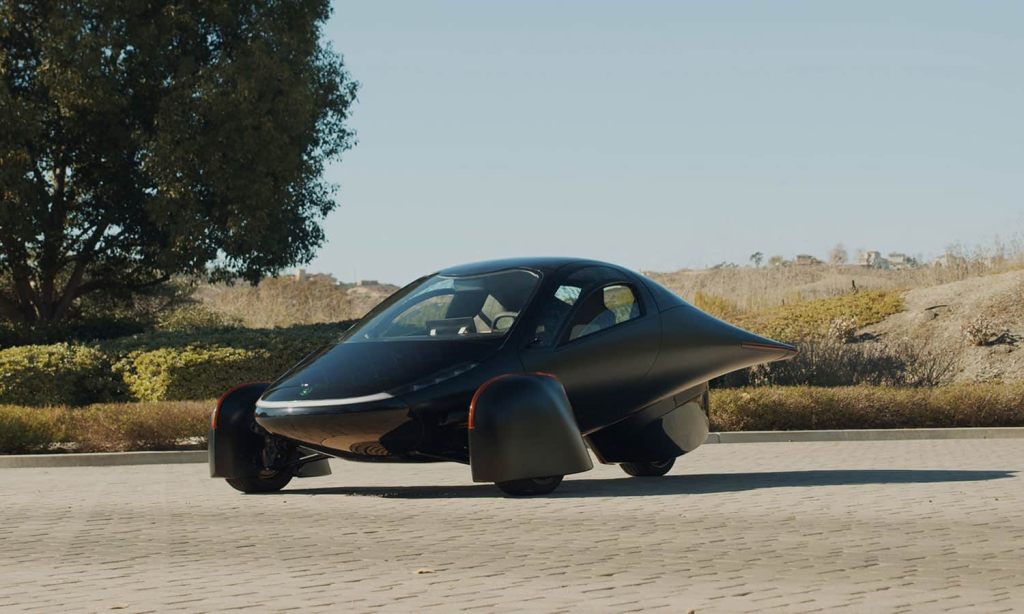Transport is Australia’s third-largest source of greenhouse gas emissions and accounts for 17% of the country’s total carbon emissions. What’s more, its impact has increased by 60% since 1990 — faster than any other sector.
We’ve a long way to go on the journey to cleaning up the way Australians get from A to B, but good things are happening. For starters, Airbus is working to create zero-emission hydrogen-powered planes, and the NSW government recently committed to replacing Sydney’s entire 8000-strong bus fleet with electric-powered vehicles by 2030.
Even now, as more car manufacturers work to create more affordable electric vehicles, one company in the US is already going a step further, with a three-wheeled solar and electric car that “requires no charging”.
The Aptera car, created by a startup of the same name, is powered by a combination of solar energy and electricity. Aptera says: “One of the key features that sets Aptera apart from other electric vehicles (or anything that has ever been on the road before) is our unique combination of solar and electric power that will fuel your ride without frequent stops at the charging station”.
Depending on where the driver lives and how much time they spend on the road, it’s possible the car’s owner may never need to charge their vehicle at all.
The Aptera is 4m long and 2.2m wide, though with its compact make can transport two adults and a pet. The car harnesses a sleek design that’s both aerodynamic and lightweight with a matte black finish on the sides, but the top of the car is shiny with 180 solar cells integrated into the car body across the bonnet, boot and top — wherever the sun touches most.
Thanks to the solar cells, the car can drive its passengers up to 40 miles or 64 kilometres per day, and up to 11,000 miles or 17,700 kilometres per year on solar power alone.
The car also has additional charging capabilities — should it need a boost an electric charging port can supply one, but with the average person driving 30 miles or 48 kilometres a day, it’s possible the car would never require a top up.
“Even though the longest-range Aptera can drive for about 1,000 miles between charge, the reality is that most of our driving is 30 miles or less,” Aptera says, according to Dezeen.
“For Aptera, 30 miles consumes about three kilowatt hour (kWh) of electricity. Now, let’s say your commute is 15 miles each way, let’s assume it’s dark when you’re driving to and from work.
“While parked at the office on a sunny day, your Aptera could put back in about 4.4 kWh, which is far more than what you’ll use that day. You’ll arrive home with more charge than when you left with. That’s how it works, it’s as simple as that.”
The Aptera site also has a calculator that allows you to work out how many times a year you would need to charge the car. Using the calculator, I discovered I would never need to charge the car based on my own location and distance needs.
While currently sold out, one could expect the Aptera to set them back US $46,900 (AU $62,200). You can find out more about the Aptera on the site now.
Read more stories from The Latch and follow us on Facebook.

